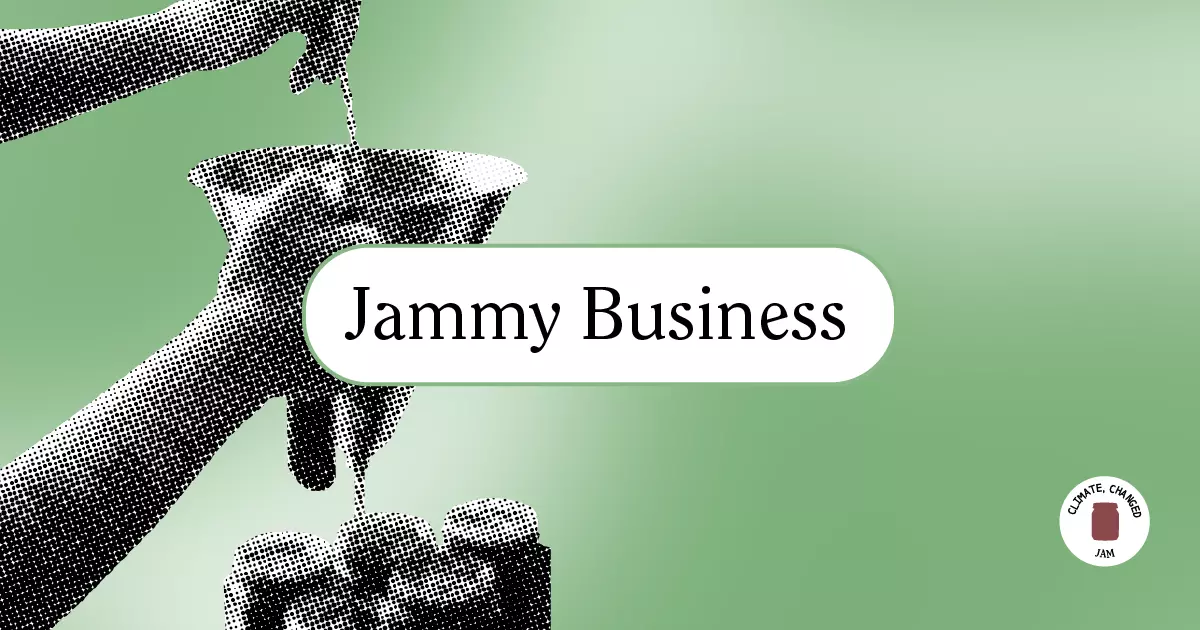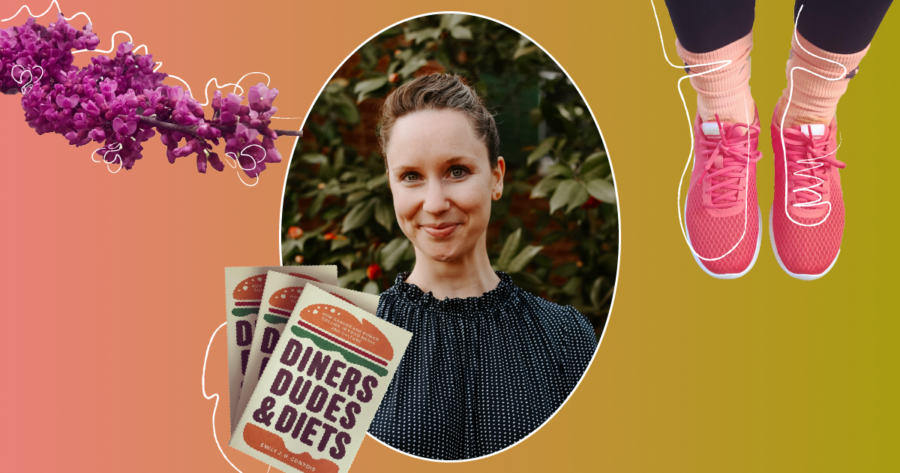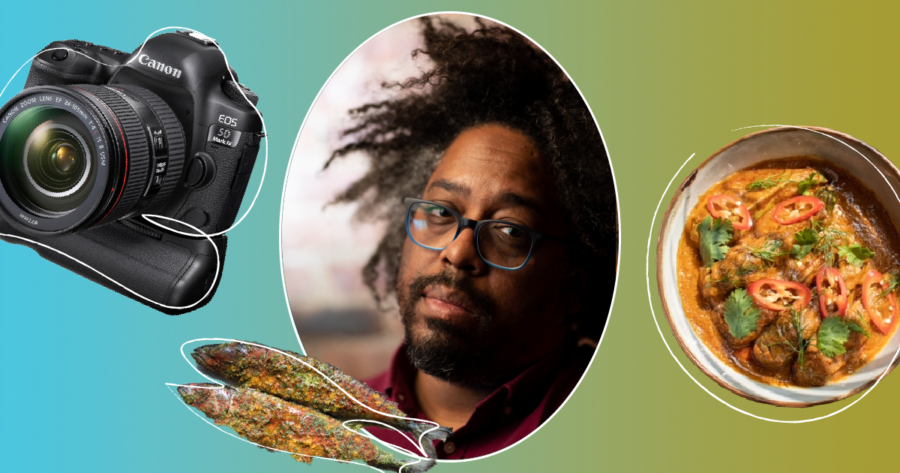INTERVIEW
On TAKEAWAY ONLY, Howie Kahn Records Resilience
WORDS BY SARAH COOKE
OCTOBER 1, 2020
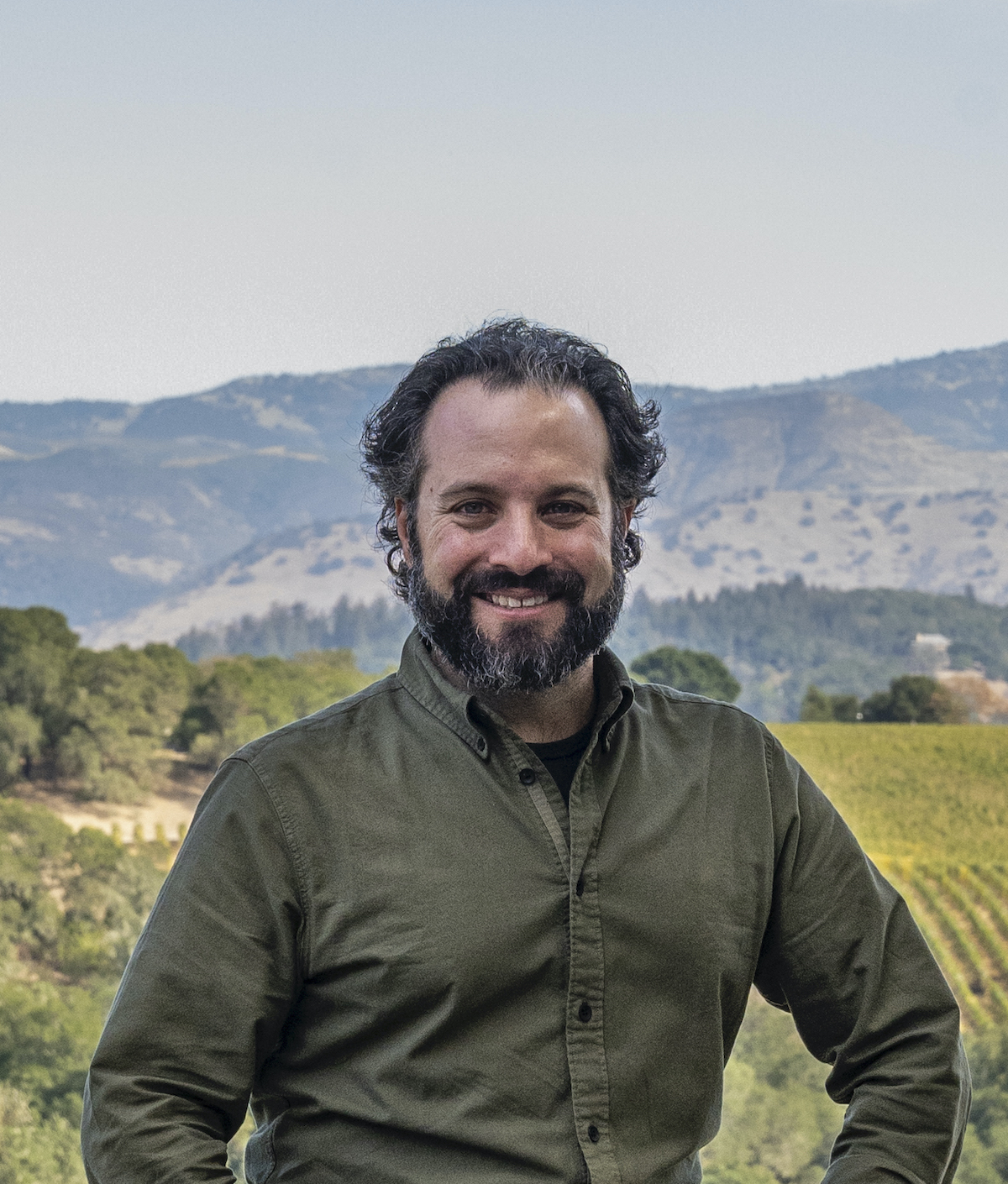
PHOTO: MATTHEW BAUM
Howie Kahn is the founder of FreeTime Media, a podcast production company, host of the podcast TAKE AWAY ONLY and co-author of the New York Times best seller SNEAKERS. He is a James Beard Award winner and a contributing editor for WSJ. Magazine and has written for dozens of publications around the world.
This conversation has been condensed and edited for clarity. On the cutting room floor: a discussion about the similarities of cats and kids (Howie: “Categorically, these are both animals that you have to take care of who do not care whether or not they are), and when Sarah’s cat, Gidget, greeted Howie with a yowl.
Sarah: What’s your corner of the world like today? [Both laugh.] Always a loaded question.
Howie: I’m home, you know, I’m always home. My corner of the world has really become a corner. I’m in my apartment, and there’s kids toys all over the place. I’m debating about whether or not I really need to clean them up to work properly, if it’s necessary for my brain to function; if the toy airplanes need to be put away, or if I can just get by with wings and engines all over the place.
I have a very vocal and opinionated cat, so if you hear any yowling in the background, that’s Gidget trying to say hello.
I’ll try not to feel judged.
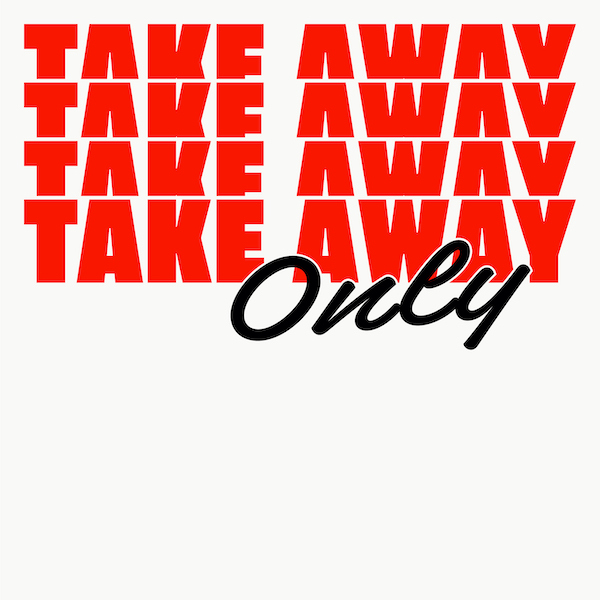
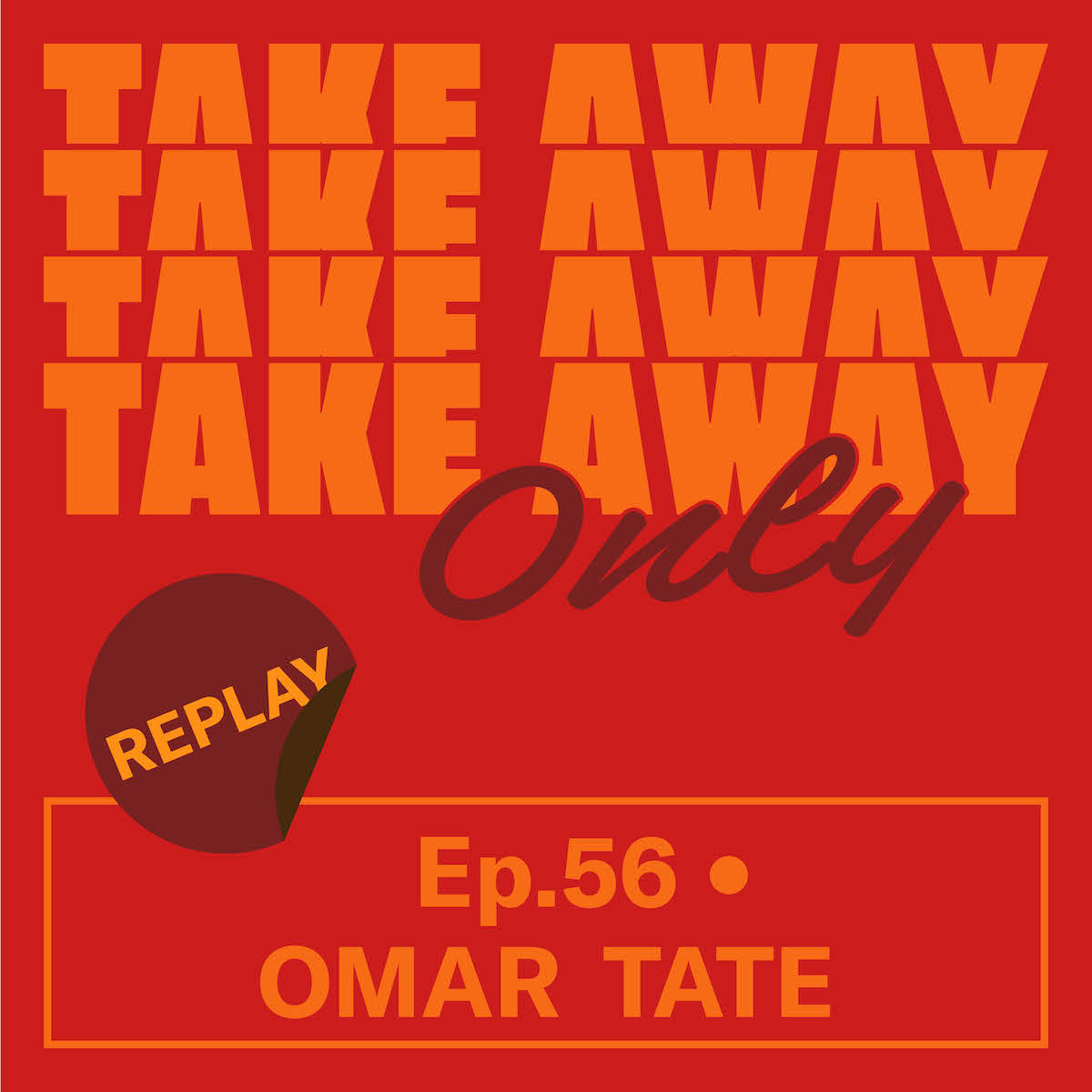
I want to start with TAKEAWAY ONLY, the podcast that you launched in March during the onset of COVID in the United States. Can you walk me through the origin story?
Restaurants started shutting down around March 15th. That morning, I woke up and saw that everyone was in trouble: My Instagram feed was full of all these heartfelt, pleading messages from restaurateurs, chefs, and people who worked in restaurants, wondering whether to close a restaurant, how to close a restaurant, what that means, and how people were going to get paid.
It was very clear that people who already struggled financially in New York were about to struggle way more, that people weren’t going to be able to pay their rent personally or for their restaurants, and that for immigrants who are in this country in a way where the path to citizenship isn’t quite clear, the programs for help weren’t there.
With my wife, who is also my business partner, and our other business partner, I have a production company called FreeTime Media. We thought, We have to do something. We have to tell these stories. It kind of felt like an emergency podcast. It wasn’t a strategic choice.
I felt it was really important to give a voice to as many people as I could. Obviously, other places were covering these stories, but I think it’s really different to read a story than hear it in people’s voices—understanding by their tone, as opposed to by their quotes, what's happening in their lives. There’s more life in the voice than there is on the page, and you can devote more time to an individual.
And I also wanted people to feel not so alone. Restaurants are at their best when they function as gathering spaces and community hubs. With COVID, everyone got cut off from everybody else.
I count myself as one of your many avid listeners, and what you’re saying rings so true: The show feels so human.
I think COVID is a really unique instance in that so many people got caught under the power of this massive force. The only thing you can equate it to is a natural disaster, but the thing about a natural disaster is that it’s a very regional thing. This was a storm that was coming for everybody. It was really important for me to show that as well. Our first show was in Seattle, and the next shows were in Seattle, Minneapolis, Detroit. We worked our way around the country and then internationally, too.
You know, I haven’t thought about it as a process as much. There hasn’t been a lot of reflection.
I don’t think there’s been time for it, you know? I think that the space of reflection is such a privilege, and it’s so hard to get there. And to me at least, whenever I have those brief moments of reflection, I’m like, “What the fuck is going on?”
The space of reflection winds up being this kind of proto-stoner, like, “Woah.” [Both laugh]. I think I deflected so much of my reflections towards asking questions of others and asking them to reflect, and I felt like their reflection was the news, so the stories they were telling were headlines about the industry. Whatever reflection I was doing was synthesizing their point.
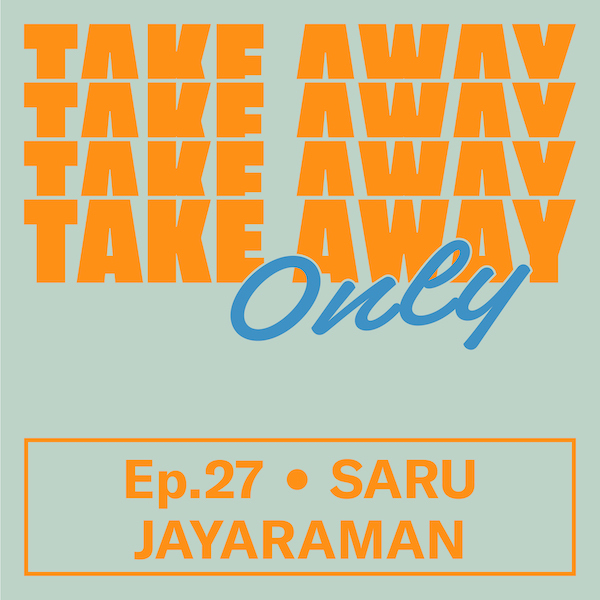
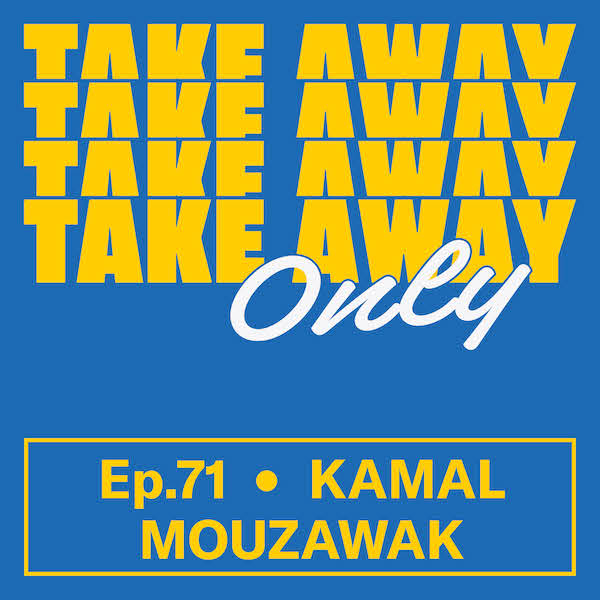
Do you feel now that you want to work more on audio journalism? I’m curious how your work on TAKEAWAY ONLY has shifted your idea of what you want to do going forward.
I don’t plan to ever stop writing on the page; I think it’s just part of who I’ve always been and who I am. But I think professionally, yes, audio is very much in line with who I am right now. It’s a format based on listening, and I think that listening is a good thing for people to develop, a good skill set to have. It’s a very old idea, when there were no TVs and people would gather around the radio, and I definitely think that listening was more of a central part of life. I like working with audio and what can be drawn out of people.
Having listened to most if not all episodes of TAKE AWAY ONLY (like I said: avid listener) and read bits of your print journalism, I feel like relationships are one of the driving themes of your work, in terms of your approach to food and to restaurants. Do you agree with that?
In the past, I’ve been asked to boil down my work to its essential parts, and I’ve always thought the two things it's about are work—how people’s jobs inform who they are, and how people’s identities inform their field of employment—and about who people are. How they feel, how they develop, how they relate with themselves and with each other.
As I’ve gotten older and my life has become both broader and narrower, there are different types of relationships that I think way more about than I ever did before. I’m a parent of a young child; prior to that, I didn’t think much about what it was like to have a child or what it was like to have a parent, even though I’ve had parents my entire life.
I think relationships are connective tissue. I think that’s another reason why this has been so hard: It guts relationships.
How much time have you spent by yourself during this quarantine?
I live in a 728 square foot apartment with my boyfriend and Gidget. Since mid-March, I’ve only been in person-to-person contact with my boyfriend.
It’s been my wife, my son, and sometimes my in-laws. We’ve just been a unit for the most part. There’s both a blessing to that kind of togetherness, and there’s also something incredibly unnatural about it.
There have been a few times when I’ve seen friends from a distance, but it’s like I’ve almost forgotten how to speak to them.
It’s funny: When you started asking questions about the show, I felt very stuttery and not knowing necessarily how to talk to a new person. I feel like I can turn myself on professionally and I can do the job, and I feel like I can relate to the people who have been in my direct circle for the past six months. But once I get out of those two boxes, I feel like I have returned to a level of awkwardness I had when I was a teenager: really unsure.
I share that. It’s like, Wait, who is hijacking me at this moment? I don’t like that person! That person makes me bumble and stumble with words and red-faced: all the things that I wrote about so frequently in my high school journal and hoped never to return to again.
I think we’re all exhausted at this point. Since day one, I’ve been saying there’s a mental health crisis accompanying this that’s going to be massive. And I recognize that everyone I know has symptoms of PTSD.
I had PTSD for a couple of years, and I feel so grateful to say that I had it and have made my way through it. But dissociation, which is so central to it, has cropped up again for me. Recently, I was interviewing somebody, and I started dissociating while talking with them.
I’ve been talking with my boyfriend about what happens when we’re in the all clear, as it were. What is going outside and going to a restaurant going to be like?
I was at a restaurant yesterday for the second time since February, and I was okay, ish. Every time someone would sit down, I would wonder about who they are and where they’ve been, if they’re carrying the disease. But I would also wonder about how the last six months have been for them: what have they gained, what have they lost.
Over the summer, you wrote a piece for Prior about your relationship with Michigan, your home state, and with New York City, your current home. You said: “In New York the energy gets into your pores and helps define you. In Michigan, your skin is more simply your skin.”
I think right now, sensitivity towards everything is extremely heightened. In New York, everyone is overcome by COVID. You’re seeing something that’s burned into your imagination forever, or you’re smelling something is either so wonderful or so disgusting that you’re never going to forget it, or you’re hearing a language you’ve never heard, or people loving each other, or yelling at each other. There’s no way to get around the sensory thrall of New York.
In New York, people are inside, and some people have gone away—I read a story in the Times that a few hundred thousand people have left—so in a way, New York strangely feels a little bit more like Michigan. I can go for a walk in my neighborhood and not see a single person. There’s an empty feeling, but I think that there’s still a memory of the way New York is supposed to be. The susceptibility of being defined and influenced by a place is right now a little bit sad, because it has a lot to do with missing something that isn’t here.
I’m sure there are people out there who are guarded and who have built walls protecting themselves, and I admire that kind of ability to create protection around oneself. But I think you and I would probably agree that vulnerability is through the roof.
There’s a Maggie Nelson line, I want to say in Bluets¹, where she says she is feral with vulnerability. I feel like that.
That sounds very painful. [Both laugh.]
Look, I’m a journalist and I’m a writer, and I think that if I’m not letting everything in, I’m failing on some level: if I’m not letting other people’s lives in, if I’m not thinking about what’s going on around me. It would be strange for me right now to not feel weird, to not feel vulnerable. I would really be concerned about myself if I was feeling very closed off. If I wasn’t feeling influenced by my surroundings. If I wasn’t feeling like a molecule buzzing around.
¹ACTUAL Maggie Nelson quote, from The Argonauts:
“A day or two after my love pronouncement, now feral with vulnerability, I sent you the passage from Roland Barthes by Roland Barthes in which Barthes describes how the subject who utters the phrase “I love you” is like “the Argonaut renewing his ship during its voyage without changing its name.” Just as the Argo’s parts may be replaced over time but the boat is still called the Argo, whenever the lover utters the phrase “I love you,” its meaning must be renewed by each use, as “the very task of love and of language is to give to one and the same phrase inflections which will be forever new.”
A big part of your work involves travel. How did you think about travel before the pandemic, and how has that changed?
I mostly just miss it, and I’m also so grateful for the travel I’ve had.
I just really want to get on a plane, I don’t even care where, just let me go for a ride. I didn’t realize how much freedom, maybe, I associated even with going to the airport. Like, we used to live in a world where we sometimes got to fly in the sky? It sounds outrageous! The privilege of that and the restrictions now of always having to have your feet on the ground: I think that’s literally sad and figuratively sad, too.
How did you establish your ethics as a journalist reporting on the hospitality industry and as somebody who, in my sense of it, really wants to capture the best in people?
It’s interesting. I mean, it’s always been really important to me to be a good journalist and to follow the rules about journalism that I think make it an important profession. For me, that means being as open and kind to people as possible, but also keeping some distance. It’s not my job to go out and be best friends with everybody I write about. It is my job to see their truth.
It helps to work a lot. If you’re always working, then the idea of the social aspect isn’t so front of mind. But it’s good to have access to people, it’s good to show up where people are. It’s good to pay attention to what they’re doing. And people respect other people’s professionalism. So I’ve tried to establish myself as somebody who’s not on the take, who is ethical and who is fair, who’s going to ask hard questions.
I think if you spend a lot of time thinking about how to tell stories ethically and fairly, you’re going to tell stories ethically and fairly. If you’re not thinking about those things at all, I think that’s where people start having problems.
It comes down to knowing what your intentions are. Like when you want to go out and get a hamburger, what kind of hamburger do you want? What kind of restaurant are you going to go to? What are your intentions with the hamburger? It’s like writing a story: What do you want to do with it?
It’s important to know what things are and who people are. I think the takeaways at the end of each show were so much about human resilience and about helping each other. I think people saw a lot of good in each other. I think it’s important to try and see other people, and see what’s real.
My last question is one I’m very curious about. On an episode of TAKEAWAY ONLY, you talked about working at the cheese counter of Zingerman’s Deli. In your professional opinion, what is the ultimate cheese plate?
That’s a really, really good question, and a really hard one. I’m a maximalist when it comes to cheeses. I think a good cheese plate would involve a lot of different cheese. You know, you can really travel with cheese. That was what was so cool for me about working the cheese counter: I was a student in Ann Arbor, Michigan, and suddenly I was selling these cheeses from Italy and from France and from Spain and from Portugal and from California.
I think I would stack the cheese plate high. If you’re going to put Parmigiano Reggiano on a cheese plate, I want to see pounds and pounds of that. If you’re going to go minimal, that’s your cheese plate. Break up a wheel of Parm and put it on a plate. I don’t think it gets much better than that.
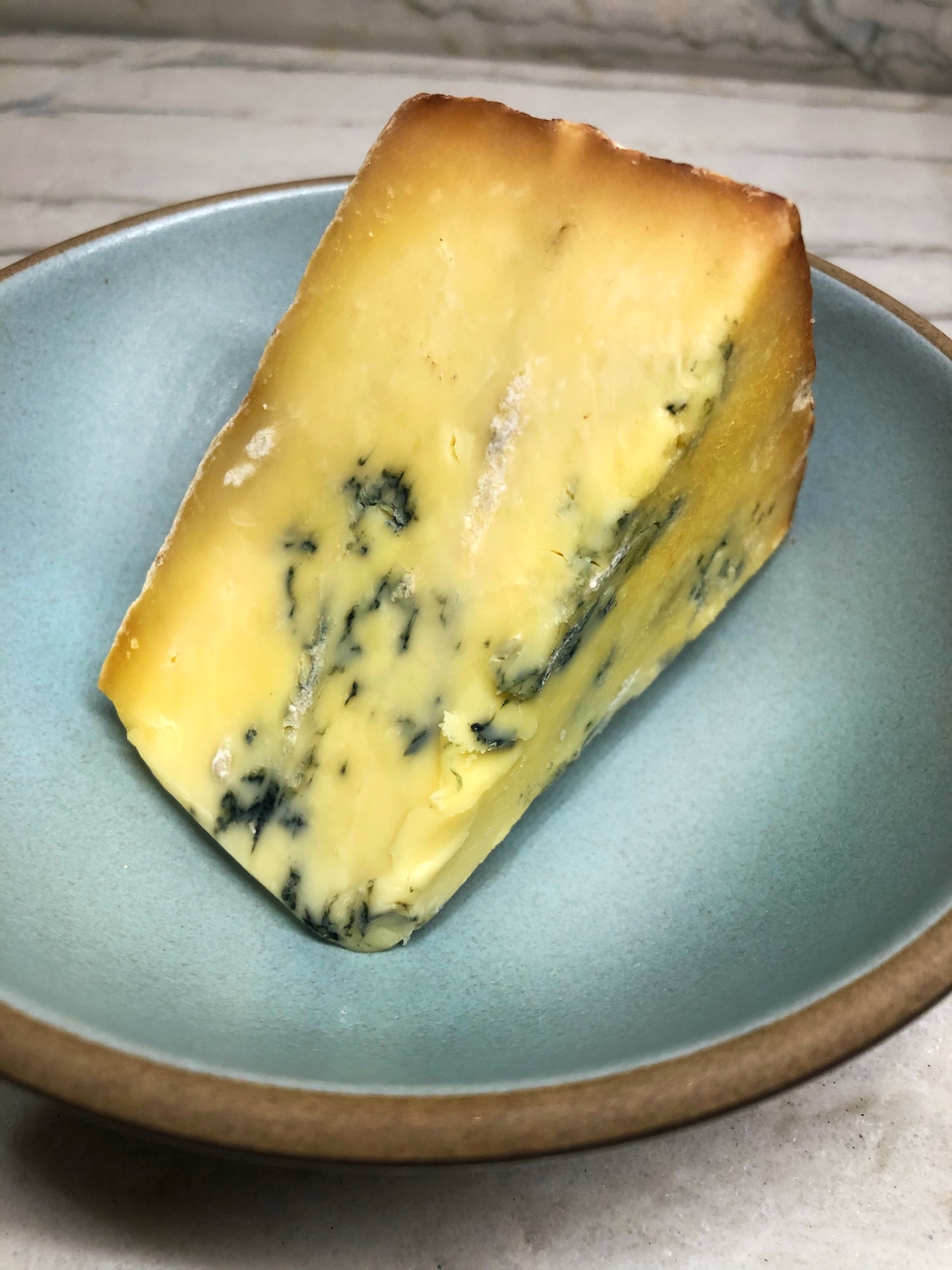
A recent plate of Stilton. Howie Kahn.
Lately, my pandemic cheese plate has been very veiny and mouldy and blue. The most shocking, in a kind of way: the color is shocking, the taste is shocking, the smell kind of sticks on you. It’s a sensory wake-up. Blue feels very alive for me right now.
But like, give me a lot of cheese. Give me the cheese. Give me the cheese that looks like it’s been hacked off into weird chunks and looks sculptural and is in weird shapes. I don’t care for the life of me if anyone puts fancy honey or dried fruit or crackers or bread or olives. I know people make these beautiful Instagram cheese boards, and they’re all compositionally based on the contrast between cheeses and other things, but I would rather just have cheese.
Sign up for Currantly, our newsletter delivering original food stories and news analysis, with surprise treats of freshly curated recipes and product drops. Think of it as your monthlyish digest to deepen your stance on food issues and be creatively inspired.
Sarah Cooke is a freelance writer and reporter based in Washington, D.C. Her reporting, which explores the intersection of food, culture, and power, has appeared in DCist, Eater DC, and Washington City Paper.
Sign up for Currantly, our monthlyish newsletter delivering original food stories and news analysis, plus fresh curations of recipes and product drops.
